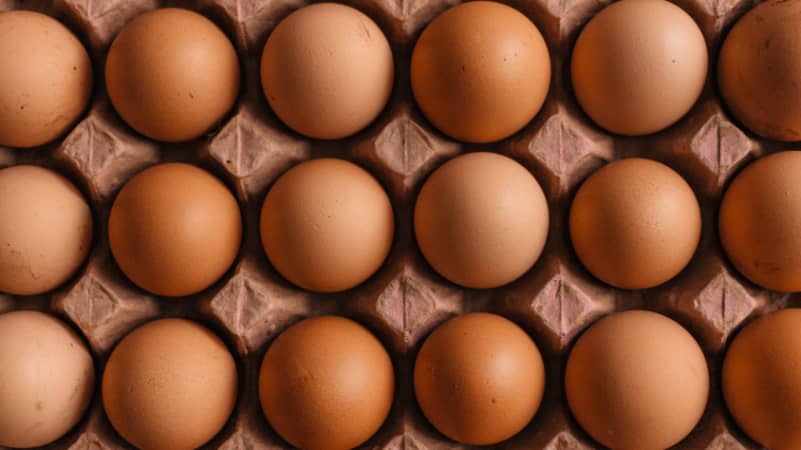
Study Links Lutein (Also Found in Egg Yolk) to Brain Health and Cognitive Function
Most Americans don’t need an excuse to eat a traditional breakfast of scrambled eggs. But for the health conscious individuals who may be on the fence about consuming eggs high in saturated fat, we’d like to share the results of a study that showed the benefits of consuming lutein, an antioxidant found in leafy green vegetables.
What is Lutein?
Studies have shown that lutein (also present in egg yolk) is a carotenoid that benefits eye health and cognition. As an antioxidant and light filter, lutein absorbs blue light before it reaches the macula and vision receptors. When in the macula, lutein and zeaxanthin (another antioxidant) are referred to as macular pigment optical density (MPOD). Measurements of MPOD are used to determine the amount of lutein in the neural tissue.
The Results of A Recent Study
Lutein is believed to play a role in neural development and emerging data has found a link between MPOD levels and math and written comprehension abilities in children.
According to the Egg Nutrition Center, in a study of 51 children 7-13 years of age, “macular pigment was related to improved measures of cognitive function on select tests (intellectual ability and executive processes), supporting the hypothesis that lutein is linked to brain health and cognition.”
Other Benefits of Lutein
Lutein is touted as “the eye vitamin” for its ability to protect against eye disorders like age-related macular degeneration (AMD). Lutein and zeaxanthin help protect the retina and macula from damage and filter high-energy blue light coming from sunlight and digital screens.
Lutein and zeaxanthin benefits:
- Protect the body from free radicals
- Help recycle an antioxidant called glutathione
- Help protect the body’s fats, proteins and DNA from stressors
- Work to reduce the effects of “bad” LDL cholesterol
- Protect the skin from ultraviolet (UV) rays
- Protect the skin from premature aging
Sources of Lutein
Lutein is primarily found in leafy green vegetables such as:
- Kale
- Parsley
- Spinach
- Broccoli
- Peas
Other sources of lutein include:
- Orange juice
- Honeydew melon
- Kiwi
- Red pepper
- Squash
- Grapes
- Durum wheat
- Corn
Eggs are considered a good source of lutein because of their high fat content; fat helps with the absorption of these nutrients.
Levels of Lutein in Eggs
One large egg has about 252 mcg of lutein and is believed to be more bioavailable than lutein obtained from other sources, such as spinach. Because lutein is made only by plants, the carotenoid can only be obtained by animals that eat plants. Chickens that are fed kale, spinach, turnip greens, corn, and other dark green leafy vegetables produce egg yolks with a more intense yellow and orange color than chickens that are only fed soy or cereal grains.
Why Grass-Fed Is So Important to Us
Studies continue to show what we have known and believed for years: grass-fed, organic eggs are key to a healthy diet. So go on and enjoy scrambled eggs for breakfast — your healthy eyes and brain will thank you.
Sources:
https://www.poison.org/articles/lutein-safety-and-benefits-172
https://www.healthline.com/nutrition/lutein-and-zeaxanthin#sources